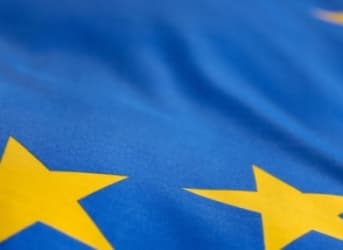With oil and gas still flooding the scene it’s a buyer’s market. For some however, picking isn’t easy. For the European Union specifically, an abundance of choice comes with its own set of logistical and geopolitical problems.
February 4 marked the launch of the EU’s Energy Union – an ambitious project that will establish a long-term plan for European energy and climate policy and set the politico-economic union on the path towards decarbonization. The doubters are many, but EU Commissioner for Climate Action and Energy Miguel Arias Canete confirmed the plan “will contain concrete measures” as well as “full and proper enforcement.” The framework strategy – still very much under discussion – is due for adoption on February 25.
Among the goals of the Union are enhanced energy efficiency, diversification and flexibility, in addition to increased deployment of renewable energy. More specifically, the EU is targeting electricity interconnection of 10-15 percent, a renewable share of 50 percent, as well as emissions reductions of more than 30 percent by 2050 – initiatives that will cost approximately $3 trillion, or nearly 15 percent of the current EU GDP. Addressing these goals will require massive infrastructure overhauls and timely investment, not to mention cooperation among the 28 vastly different member nations. In the early goings, that last bit is proving tough.
Preliminary reports suggest that the European Commission lacks a consensus on one of the Energy Union’s more contentious ideas – a unified system of purchases for natural gas. Natural gas will remain an important transition fuel for the EU and its share in primary energy consumption is projected to remain the same, if not increase, by midcentury. Not surprisingly, imports of natural gas are also expected to rise every decade toward 2050. While diversifying the source of those imports, Brussels would also like to monopolize the system of payment.
The divide is predominantly East-West. Eastern Europe is largely dependent on Russian gas, which it buys through bilateral long-term oil-indexed take-or-pay contracts – a mouthful, I know. Some nations pay more, others less, but in general their negotiating position is fairly weak. In Western Europe, free-market principles are more in play and the region enjoys greater flexibility in terms of purchasing and consumption.
The suggestion is to somewhat merge the two and create a single buyer who could negotiate more favorable, hub-referenced contracts – a system that President of the European Council Donald Tusk believes will save the EU approximately $41 billion per year. In principle, it’s a nice idea, but the suits at Gazprom aren’t sweating.
For one, Western European nations are rightly concerned that common purchasing is a violation of competition laws. That aside, Eastern hubs lack liquidity and the infrastructure to source LNG from Western terminals. With little depth to the market, Gazprom maintains its pricing power. That could all change relatively soon, but the EU-championed southern supply corridor only looks to bring in 10 billion cubic meters of natural gas in 2015 – about 6 percent of Russia’s annual contribution to the EU28. Perhaps most importantly, not all Central/Eastern European nations are ready to bite the hand that feeds.
If it’s competition that the EU wants, Gazprom and Russia are prepared to oblige – provided the EU meets it halfway. Neither side is particularly deft at bluffing and the mutual dependency is real, but Russia has the benefit of facing an often-divided 28-member bloc.
By Colin Chilcoat of Oilprice.com


















